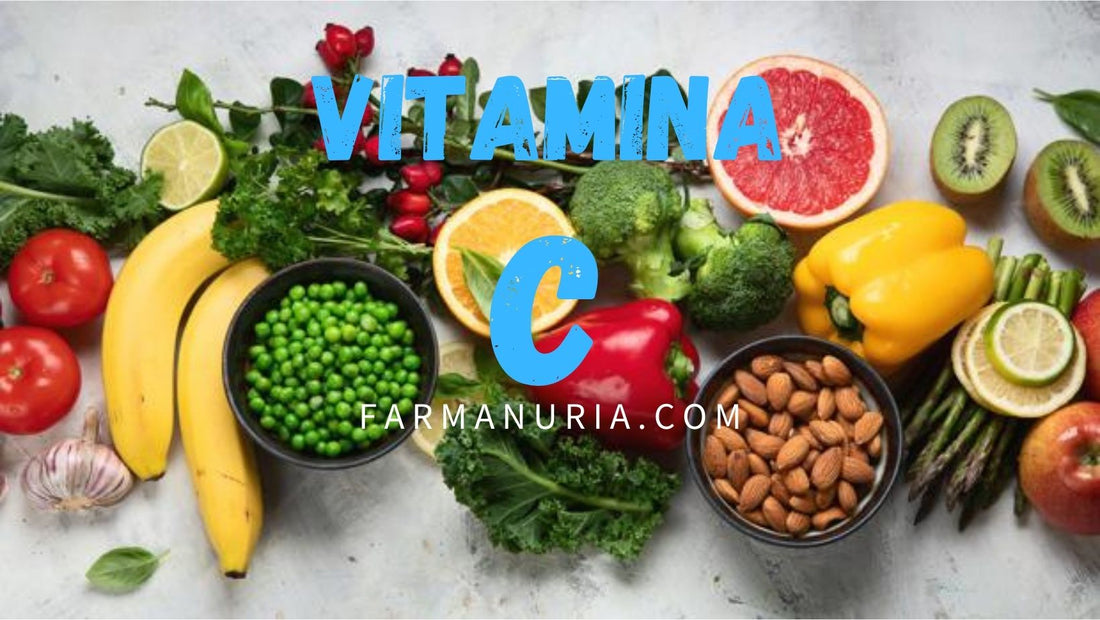
Vitamin C: Why is it in all supplements and even creams?
Share
Vitamin C, or ascorbic acid, is a water-soluble vitamin; it dissolves in water and is eliminated through the kidneys in urine . It is essential for our body, but it is unable to synthesize or store it , so we must ingest it regularly through our diet . Its functions in the body are extensive, and a deficiency or overdose can cause problems. Today we'll review everything we need to know about vitamin C, which is used in a multitude of products.

It's an antioxidant , but first, I must explain why we oxidize and why it's important to prevent it. The cells in our body obtain energy through a process of oxidation of the food we eat, a process called cellular respiration. When the process is complete, we obtain energy and free radicals as a result. These free radicals are very reactive and react with everything around them. This process is essential for life, but the production of free radicals over time can have negative effects on the cell and its DNA, causing us to age prematurely . Damn Free Radicals!
Vitamin C is found in a multitude of foods, although we can also ingest it through vitamin supplements. It's found in citrus fruits, berries, potatoes, tomatoes, peppers, cabbage, Brussels sprouts, broccoli, and spinach.

It helps in the formation of blood vessels, cartilage, and collagen , making it a staple in most supplements designed to improve joint health. Vitamin C's role in collagen production is to act as a cofactor within cells: It's the magic molecule that kick-starts the process of collagen creation ; without it, collagen production will decline.

We see it in many skin cream formulations , but why? It's very simple: vitamin C and skin get along wonderfully, as it helps with most of our skin problems. It's a natural depigmenting agent that helps reduce blemishes and acne scars . As it's a precursor to collagen, it can reduce fine lines, wrinkles, and sagging of the face . And finally, if that wasn't enough, vitamin C neutralizes free radicals that cause oxidative stress in the skin and lead to premature aging .
This vitamin plays an important role in keeping our defenses in good condition:

It stimulates the function of leukocytes, our internal warriors against infections. Its antiviral and antioxidant properties make it a powerful ally against respiratory infections . Multiple studies have shown that it can shorten the duration and severity of the common cold.
Feeling stressed? Well, vitamin C has been shown to be effective in reducing cortisol levels, a hormone we produce in difficult or stressful situations. It's a natural stress reliever.
Vitamin C helps in the absorption of iron, which is why it is often recommended to drink orange juice when taking iron supplements.
As if that were not enough, the University of Oregon demonstrated that 500 mg of vitamin C per day reduces blood pressure in hypertensive patients by up to 9% without any side effects.
Now, as I always say, everything in moderation; any excess is not good for your health. Long-term use of oral vitamin C supplements above 2,000 milligrams per day increases the risk of significant side effects.
The opposite also applies: Too little vitamin C can cause scurvy, a disease characterized by: Anemia , bleeding gums, gingivitis, hemorrhages, etc.
After all this rambling, I should have given you enough reasons to start improving your diet or taking supplements. What are you waiting for?
Angel La Orden Vanaclocha Community Pharmacist at the VANACLOCHA PHARMACY
